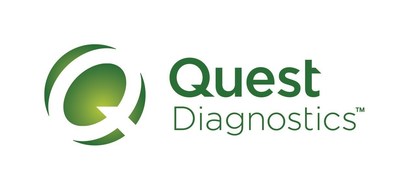Quest Diagnostics Debuts MelaNodal Predict™ Test, Personalizing Melanoma Risk Prediction to Help Patients Forgo Invasive Surgery
Based on technology from SkylineDx, the test aims to aid treatment decisions for patients with the deadliest form of skin cancer
Patients classified as low-risk by MelaNodal Predict are shown to have survival rate of over 90 percent
MelaNodal Predict is a lab-developed test validated by Quest Diagnostics and based on technology developed by SkylineDx, an oncology biotechnology company, alongside Mayo Clinic. The technology utilizes a combination analysis of patient age and tumor thickness with advanced gene expression profiling technology. MelaNodal Predict examines a patient's original diagnostic tumor biopsy and applies an algorithm to help providers identify patients with a low or high risk of nodal metastasis (melanoma that has spread to the lymph nodes).
This insight may help providers identify patients that could, with less risk, avoid a potentially unnecessary, expensive and invasive surgery called a sentinel lymph node biopsy (SLNB). If the algorithm classifies a patient as low risk, they may be able to choose to forgo the procedure. More than 8 in 10 patients who have an SLNB are negative for nodal metastasis, based on post-surgical analysis.2
"Melanoma test services are an important component of our broad portfolio of advanced oncology tests," said Kristie Dolan, Senior Vice President and General Manager of Oncology at Quest Diagnostics. "By leveraging our scale, we can provide MelaNodal Predict to patients and treating physicians across the country to support clinical decision making. The MelaNodal Predict test's results will help physicians identify their patient's risk of metastasis to assist in individualizing surgical decisions and patient management plans."
By reducing SLNB interventions, providers who utilize the test may be able to more effectively use healthcare resources and manage patient risk. It is estimated that patients who receive an SLNB have a greater than
"This relationship between Quest and SkylineDx is a testament to the transformative impact that innovative collaborations can have in healthcare. SkylineDx's expertise in molecular diagnostics, coupled with Dermpath Diagnostics' leadership in dermatopathology, has elevated MelaNodal Predict to a new standard in personalized melanoma care," said Dharminder Chahal, CEO of SkylineDx. "Working with Quest Diagnostics will help us ensure we can continue to advance the field of molecular diagnostics and broaden access to our innovations. Together, we hope to make a meaningful impact on the lives of individuals impacted by this disease."
This collaboration aims to combine SkylineDx's innovative technology with Quest's expertise and national scale in
About SkylineDx
SkylineDx is a biotechnology company focused on research and development of molecular diagnostics in oncology and inflammatory diseases. SkylineDx uses its expertise to bridge the gap between academically discovered gene expression signatures and commercially available diagnostic products with high clinical utility, assisting healthcare professionals in accurately determining the type or status of disease or predicting a patient's response to treatment. Based on test results, healthcare professionals can tailor the treatment approach to the individual patient. SkylineDx is headquartered in
About Quest Diagnostics
Quest Diagnostics empowers people to take action to improve health outcomes. Derived from the world's largest database of clinical lab results, our diagnostic insights reveal new avenues to identify and treat disease, inspire healthy behaviors and improve health care management. Quest annually serves one in three adult Americans and half the physicians and hospitals in
1 Melanoma Skin Cancer Statistics | American Cancer Society
2 Stetkevich SA, Simman R. Redesigning Sentinel Lymph Node Biopsy Guidelines in Melanoma Cases. Eplasty. 2023 Feb 3;23:e8. PMID: 36817365; PMCID: PMC9912052.
3 Wilke LG, McCall LM, Posther KE, Whitworth PW, Reintgen DS, Leitch AM, Gabram SG, Lucci A, Cox CE, Hunt KK, Herndon JE 2nd, Giuliano AE. Surgical complications associated with sentinel lymph node biopsy: results from a prospective international cooperative group trial. Ann Surg Oncol. 2006 Apr;13(4):491-500. doi: 10.1245/ASO.2006.05.013. Epub 2006 Mar 2. PMID: 16514477.
4 Amaral T, Sinnberg T, Chatziioannou E, et al. Identification of stage I/II melanoma patients at high risk for recurrence using a model combining clinicopathologic factors with gene expression profiling (CP-GEP). Eur J Cancer. 2023;182:155-162. doi:10.1016/j.ejca.2022.12.021
5 Multicenter US Study Reveals CP-GEP's Profound Impact on Stratifying Melanoma Patients for Long-Term Survival - SkylineDx
![]() View original content to download multimedia:https://www.prnewswire.com/news-releases/quest-diagnostics-debuts-melanodal-predict-test-personalizing-melanoma-risk-prediction-to-help-patients-forgo-invasive-surgery-302060012.html
View original content to download multimedia:https://www.prnewswire.com/news-releases/quest-diagnostics-debuts-melanodal-predict-test-personalizing-melanoma-risk-prediction-to-help-patients-forgo-invasive-surgery-302060012.html
SOURCE Quest Diagnostics








